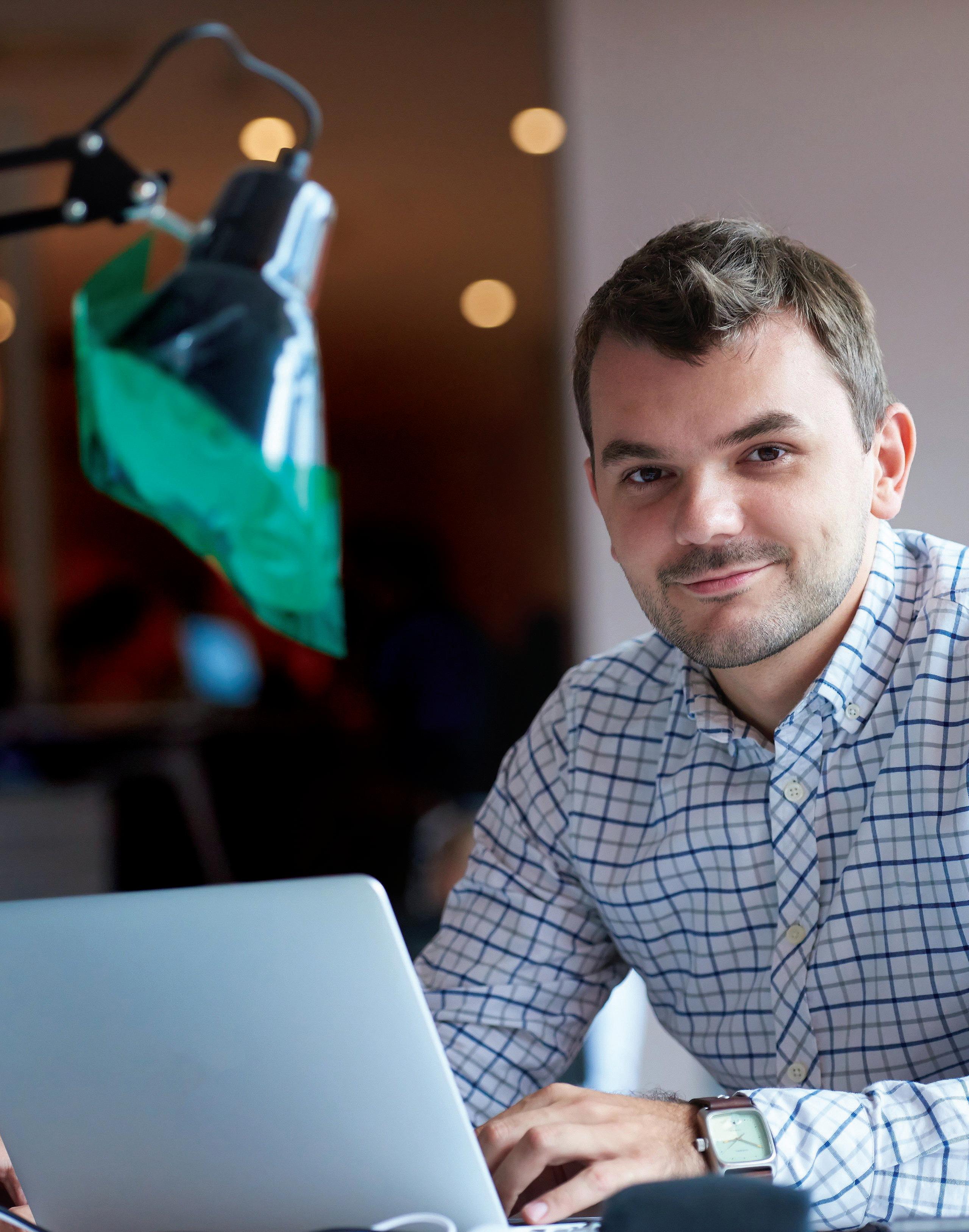
3 minute read
Creating a business environment where entrepreneurship thrives
By Leslie Lynn Smith, President & CEO, EPICENTER
As our region’s entrepreneurship hub, we take very seriously our responsibility to understand the economic, cultural, and policy conditions — from the local level to the federal level — that are most likely to encourage entrepreneurial activities within our community. After all, most jobs in our country are added from start-ups and small businesses.
Advertisement
Relative to Memphis, at Epicenter, we wake up every day committed to creating a culture that lifts up the voices of entrepreneurs and celebrates their success and role in our community. We also work to remove barriers for entrepreneurs and increase access to resources for all members of our community. We encourage a mindset of investing as if we’ll succeed, not fail, which requires a shift from a scarce environment of resources for entrepreneurs to an abundant one. At the center of all of these efforts is our focus on justice and inclusion.
To do this cultural work, we’re strengthening the comprehensive system of support that provides seamless access to the ideas, people, money, and customers entrepreneurs need to be successful. For example, Epicenter’s role is to identify gaps in its ecosystem, and, not surprisingly, what comes up most is access to capital. We’ve approached these gaps with a “capital stack” concept, which prioritizes access to a variety of capital types – from angel investment, to bank debt and equity – all designed to help entrepreneurs scale no matter their stage of business. For example, we’re piloting a Friends and Family Fund, designed for small entrepreneurial businesses in the Memphis area to meet a onetime capital milestone. It is also intended to fill a gap where investments from “friends and family” may not be available to an entrepreneur – this is often the case in underrepresented communities, such as entrepreneurs of color and women.

We’re also educating more potential angel investors by providing world-class expertise on the ins and outs of being an angel, how to evaluate deals, and how this type of investment fits into a financial portfolio. We gather current angel investors on a monthly basis to hear pitches from local startups — both tech- and creative-based businesses — to incent more investment and more connections to customers or key stakeholders. This attraction and growth of more investment capital to the region is paired with quality programs and technical assistance executed by partners across the region.
Naturally, as economic developers and business community members, we need to surround all of these efforts with a policy environment that makes business creation, licensing, and compliance easier. Of course, these opportunities are not unique to entrepreneurs in our region. In fact, I recently attended a meeting of the Center for American Entrepreneurship as a board member, where we sought to identify, understand, and develop meaningful solutions to challenges that are hindering start-ups from either launching in the first place or being as successful as they can be. Often, these policies aren’t just related to the business; rather, they affect the founders themselves, their quality of life, and their financial security. Policies can either de-risk a founder’s opportunity to start a business — or make it harder or near impossible to do so.
On a federal level, these kinds of policy topics are of critical importance to the success of entrepreneurs: • Portability of and access to affordable healthcare • Management of student debt • Retirement insecurity • Access to capital policies that remove barriers, especially for women and people of color • Talent and the implications of immigration policies on startup activity • Continued investments in innovation/research and development, such as funding of Small Business Innovation Research (SBIR) and Small Business Technology Transfer (STTR) programs, for example.
On behalf of our local entrepreneurs, Epicenter is engaging in discussions like this one, as well as joining efforts like Kauffman Foundation’s Start Us Up: America’s New Business Plan, which is a bipartisan roadmap for reducing barriers to entrepreneurship and spurring more startups across the country. The initiative is designed to center a national conversation around the importance of entrepreneurship and the culture, policies, and tools that will most effectively encourage and support company formation and growth across the country. Regionally, organizations like Launch Tennessee and Life Science Tennessee help connect legislators with entrepreneurs’ stories, successes, and challenges.
In the meantime, we’ll continue meeting with elected officials at the local, state, and federal levels to discuss how founders of start-ups and small businesses in the Memphis region can launch, scale, and hire more easily.
RESOURCES WE RECOMMEND: • Center for American Entrepreneurship https://www.startupsusa.org • Start Us Up: America’s New Business Plan https://www.startusupnow.org




